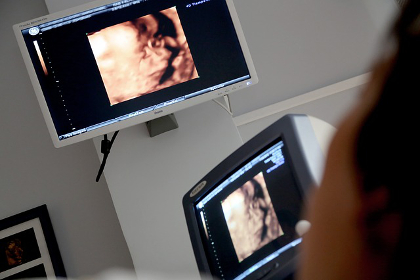
Prenatal Exposure to Organochlorine Chemicals Linked to Increased Odds of Autism in Children
Chemicals used in certain pesticides and as insulating material banned in the 1970s may still be haunting us, according to new research that suggests links between higher levels of exposure during pregnancy and significantly increased odds of autism spectrum disorder in children.
August 23, 2016 | Source: News-Medical | by
Chemicals used in certain pesticides and as insulating material banned in the 1970s may still be haunting us, according to new research that suggests links between higher levels of exposure during pregnancy and significantly increased odds of autism spectrum disorder in children.
According to the research, children born after being exposed to the highest levels of certain compounds of the chemicals, called organochlorine chemicals, during their mother's pregnancy were roughly 80 percent more likely to be diagnosed with autism when compared to individuals with the very lowest levels of these chemicals. That also includes those who were completely unexposed.
Although production of organochlorine chemicals was banned in the United States in 1977, these compounds can remain in the environment and become absorbed in the fat of animals that humans eat, leading to exposure.
With that in mind, Kristen Lyall, ScD, assistant professor in Drexel University's A.J. Drexel Autism Institute, and her collaborators, decided to look at organochlorine chemicals during pregnancy since they can cross through the placenta and affect the fetus' neurodevelopment.
"There's a fair amount of research examining exposure to these chemicals during pregnancy in association with other outcomes, like birth weight — but little research on autism, specifically," Lyall said. "To examine the role of environmental exposures in risk of autism, it is important that samples are collected during time frames with evidence for susceptibility for autism — termed 'critical windows' in neurodevelopment. Fetal development is one of those critical windows."
Their paper describing this study was titled, "Prenatal Organochlorine Chemicals and Autism," and published in Environmental Health Perspectives. Now a researcher in the A.J. Drexel Autism Institute's Modifiable Risk Factors Program, Lyall was with the California Department of Public Health when she began the work. She teamed with researchers from the department, including Gayle Windham, PhD, and Martin Kharrazi, PhD, members of the Kaiser Permanente Division of Research (which includes the study's principal investigator, Lisa Croen, PhD), as well as an expert on measuring organochlorine chemicals, Andreas Sjodin, PhD, of the Division of Laboratory Sciences of the National Center for Environmental Health.
